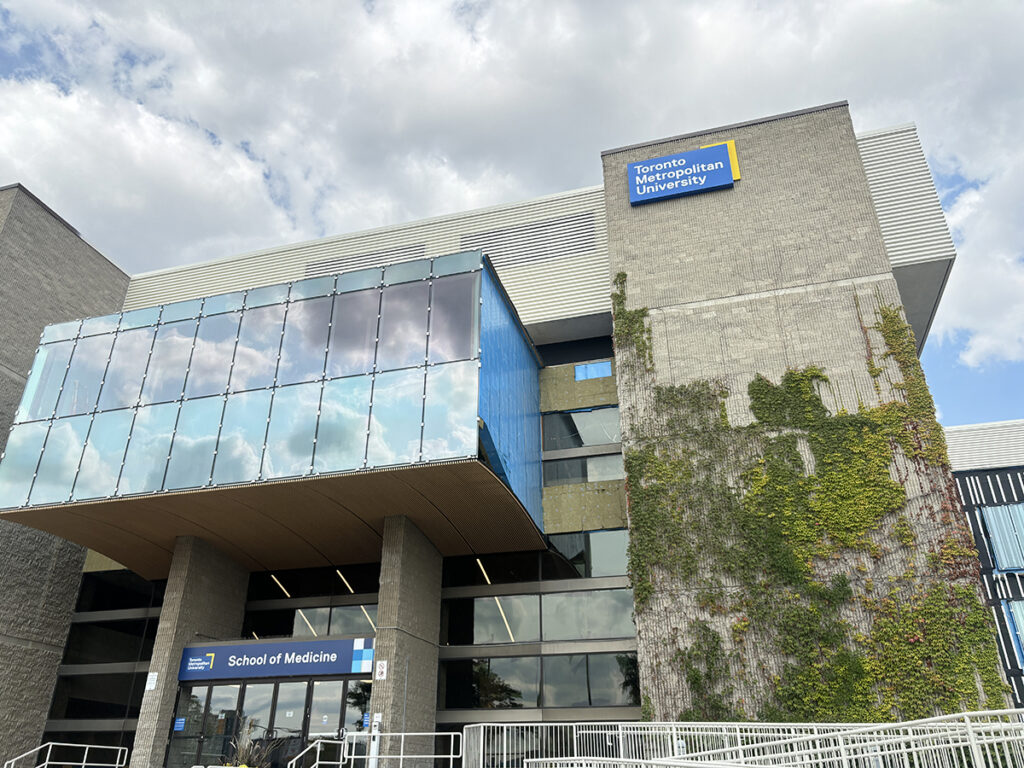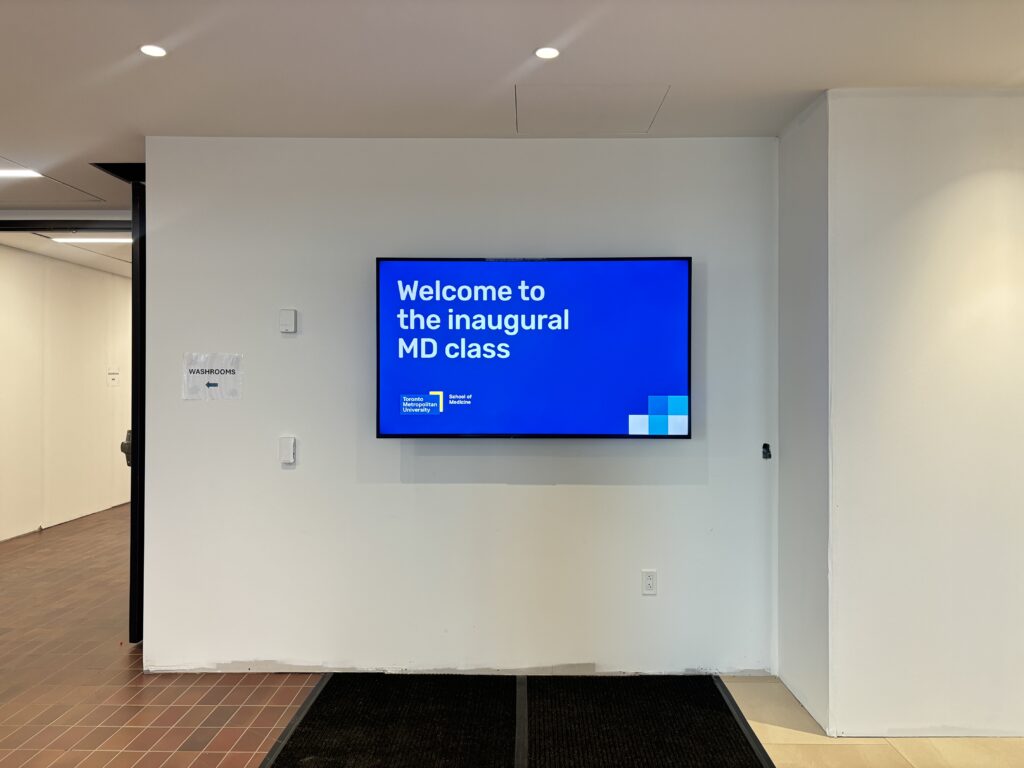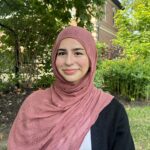
Listen to the whole story here:
The inaugural class of Toronto Metropolitan University’s new School of Medicine defended their academic standing to TikTok users, accusing them of being accepted through diversity initiatives rather than merit.
On Sept. 2, TMU MD student Habon Ali posted a TikTok celebrating the inaugural class of the new School of Medicine. Ali’s video gained over 100,000 views and received nearly instant backlash, including from one user who wrote, “Don’t you want doctors who got in because they deserve it not because of DEI.”
Ali said she found the comment disheartening, “It discredited a lot of the effort that it took [the students] to get here, and knowing my story, it felt like a slap in the face.”
She responded with a second TikTok saying she would go “accomplishment for accomplishment.” The video highlighted her two master’s degrees, experience advising former prime minister Justin Trudeau, as well as other successes.
Other TMU MD students faced similar backlash on TikTok. MD student Zobia Aamir posted a video showing an auditorium filled with classmates. In the comment section, one user wrote, “Not a Canadian in sight” to which Aamir responded in the comments, “Hey btw I’m Canadian.”

The new medical school — the first to open in the Greater Toronto Area in more than 100 years — has faced criticism for its admissions process. The School of Medicine does not require the Medical College Admission Test (MCAT) and also considers an applicant’s background and experiences as part of the admissions process.
The equity-driven approach has prompted op-eds and discriminatory comments online, questioning the merit of the institution and the students accepted into it.
According to the Association of Faculties of Medicine of Canada, the MCAT is described as a barrier for racialized applicants and applicants who come from low socioeconomic backgrounds.
Dr. Mireille Norris, a geriatrician at Sunnybrook Health Sciences and an associate professor of medicine at the University of Toronto, acknowledges the role of resources and privilege in entering the medical field. She advocates for accessible medical education for racialized groups.
@habonali23 Replying to @Confusedmeep ♬ original sound – trendkids
She said that marginalized communities need a larger proportion of healthcare resources and yet have the worst outcomes. “If you want to have the best impact, we want to be able to have a workforce that addresses the needs of those most impacted,” said Norris.
Norris’ analysis is supported by Statistics Canada data, which shows that racialized minorities in Canada often have lower rates of access to a regular health care provider compared to the non-racialized population. In 2023, when compared to the non-racialized population, “a lower proportion of Arab (77.5%), Black (72.3%), Korean (70.7%), Latin American (73.4%) and Chinese (80.4%) adults had a regular health care provider.”
For Aamir, she said she felt grateful for the encouraging comments but disappointed at the stereotypes. “The backlash showed me how important it is to have future physicians who understand both medicine and the lived realities of marginalized patients.”
For both Ali and Aamir, becoming physicians is rooted in lived-experience. “As a full-time medical student and caregiver for my partner, who has undergone more than 31 surgeries, I have seen the gaps in our healthcare system firsthand,” said Aamir.
In response to the harassment, Ali said TMU has been supportive with an “open-door” policy if they need help with anything.
Ali said that while people equate giving opportunity to equity-deserving groups to a lack of merit, this is untrue. “The fact of the matter is, I would not be valedictorian. I would not be Canada’s Top 100 Most Powerful Women,” said Ali.
Ali said the unfair treatment is the cost of doing something new. However, she said that the inaugural class’s response will be their efforts when entering the medical space.
She added that she sees her classmates as qualified and deserving of the 94 MD spots. “I can’t think of anyone who would be better to serve the community,” said Ali.
Otter.AI was used in transcribing the interviews for this story.

